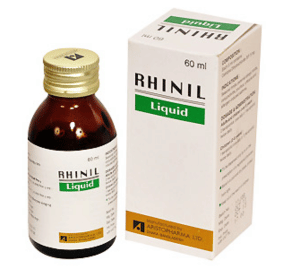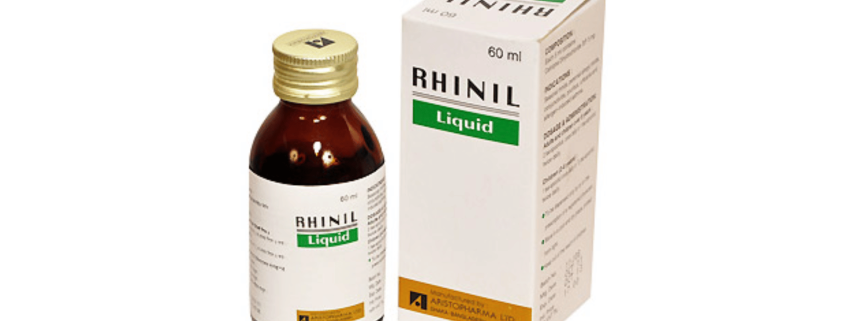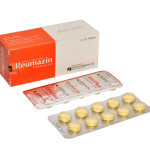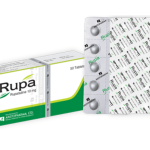Rhinil (Cetirizine)

Therapeutic Group : Antihistamine & Decongestant
Presentation:
Rhinil Tablet: Each film coated tablet contains Cetirizine Dihydrochloride INN 10 mg.
Rhinil Liquid: Each 5 ml of liquid contains Cetirizine Dihydrochloride INN 5 mg.
Indications:
Cetirizine is indicated for the symptomatic treatment of allergic rhinitis and urticaria.
Dosage & Administration:
Rhinil Tablet:
Adults and children over 6 years: 1 tablet once daily or 1/2 tablet twice daily.
Children 2-6 years: 1/2 tablet once daily.
Rhinil Liquid:
Adults and children over 6 years: 2 teaspoon once daily or 1 teaspoon twice daily.
Children 2-6 years: 1 teaspoonful once daily or 1/2 teaspoon twice daily.
Contrainidications:
Rhinil is contraindicated in patients who have shown hypersensitivity or idiosyncrasy to it or to its parent compound, Hydroxyzine.
Warning & Precautions:
Patients are advised not to exceed the recommended dose if driving car or operating machinery. Caution should be taken with concommitant use of sedatives and some dose reduction may be required if renal fuction is impaired.
Side effects:
Rhinil is well tolerated and associated with fewer adverse effects compared with first generation antihistamines. Side effects include headache, dry mouth, dizziness, agitation and gastrointestinal upset. Rhinil does not produce anticholinergic effects.
Use in special groups:
Use in pregnancy: There is inadequate information about its safety during pregnancy. It should be used only if the potential benefit justifies the potential risk to the foetus.
Use in lactation: Nursing mothers are advised not to take this medicine.
Packing:
Rhinil Tablet: Each box contains 100’s tablets in blister pack.
Rhinil Liquid: Each bottle contains 60 ml of Rhinil liquid.



